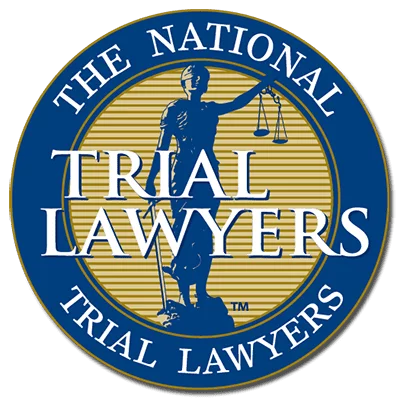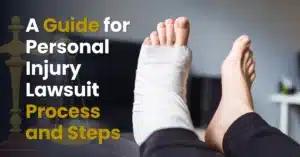In the face of tragic loss and overwhelming grief, finding a way forward can feel insurmountable. At Chalaki Law, we understand the profound impact of wrongful death and are dedicated to helping families recover, heal, and move forward. Our empathetic attorneys seek justice, providing support and guidance while working tirelessly to ensure that such a tragedy never happens again. We are committed to creating a better future for those who have suffered irreparable loss, shouldering the legal burdens and advocating fiercely on their behalf.
With utmost compassion and deep concern for the families we serve, our experienced team recognizes the weight of your grief and the unique circumstances of your loss. We believe that no amount of compensation can replace a lost life, but it can help alleviate financial burdens and provide closure. We approach each case with unwavering support, working to honor your loved one’s memory and protect others from similar tragedies. At Chalaki Law, you don’t have to face wrongful death alone. Together, we can navigate the path toward healing, recovery, and a brighter future. Contact us today to begin the journey of seeking justice and finding solace amidst your grief.
How to File a Wrongful Death Lawsuit or Claim?
Losing someone close can be heartbreaking; our hearts go out to you during this trying time. Filing a wrongful death claim may seem complicated or intimidating but our legal experts are here to guide and support you along this journey forward. The following steps in a wrongful death lawsuit provide a general overview, and it’s crucial to consult with us to navigate the specific requirements of your jurisdiction.
Step 1: Seeking Legal Counsel – Your first move is to reach out to wrongful death lawyers with extensive experience in wrongful death cases. These legal experts will provide the guidance and support you need. We will assess the viability of your claim and help you understand the best steps to take in your unique situation.
Step 2: Gathering Supporting Evidence – Your wrongful death lawyer in Dallas will work closely with you to collect relevant evidence that supports your claim. This can involve obtaining medical records, accident reports, witness statements, photographs, and other documents to help establish negligence or liability.
Step 3: Identifying the Responsible Parties – Identifying the individuals or entities who may be held accountable for wrongful death is crucial. This can include individuals, corporations, healthcare providers, or other parties whose actions or negligence contributed to the incident.
Step 4: Understanding Statute of Limitations – Ensure you know your jurisdiction’s statute of limitations applicable to wrongful death claims. This sets the time limit within which you must file your claim. Missing this deadline could result in your claim being dismissed, so acting promptly is essential.
Step 5: Initiating the Lawsuit – Once all the necessary groundwork is done, wrongful death lawyers will draft and file a wrongful death lawsuit on your behalf. The lawsuit will outline the case’s specifics, including the parties involved and the legal basis for seeking compensation.
Step 6: Discovery and Investigation – After the lawsuit is filed, both parties engage in discovery. This involves exchanging information and evidence. Your attorney may also conduct additional investigations to strengthen your case further.
Step 7: Negotiation and Settlement – Parties can attempt to reach an amicable agreement before heading into court, so your lawyer is the perfect resource for skillfully negotiating on your behalf to reach a fair and just settlement that compensates you adequately for your loss.
Step 8: Trial, Verdict and Appeal – When no settlement agreement can be reached between parties involved, cases can proceed directly to trial. During a trial both sides present arguments and evidence to a judge or jury who will then render their verdict. Either party may then appeal the decision if they believe there were legal errors during the proceedings.
Step 9: Distribution of Compensation – Should your settlement or trial result in successful compensation being awarded, any funds granted will be distributed either directly to eligible beneficiaries of deceased estate, depending on individual circumstances and laws that may apply.
Texas allows two years from the date of death for initiating legal proceedings against those responsible by filing a wrongful death claim lawsuit and initiating proceedings through filing legal paperwork and taking appropriate legal steps against those at fault.
Note, however, that exceptions or variations to this general rule may exist depending on the circumstances a case presents; for example, medical negligence could alter this timeline differently.
Texas law typically allows two years from either the date of negligent act or omission that caused death; two more from when it was discovered with reasonable diligence; or, at most ten years from this act.
What Constitutes Wrongful Death?
In Texas, wrongful death occurs when a person’s wrongful act, negligence, carelessness, or unskillfulness leads to someone else’s death. The survivors of the deceased bring the wrongful death claim on behalf of their lost loved one. The following parties may file a wrongful death claim:
- The surviving spouse of an official or common law marriage of the decedent
- The surviving children of the decedent, whether adults or minors (with representation)
- The biological parents of the decedent
- The adoptive parents of the decedent
- The adoptive child of the decedent (with full adoptive rights)
- The executor of the decedent’s will or the representative of their estate (if a qualified survivor fails to timely file)
It is worth noting that, in Texas, siblings may not file for the suffering experienced or wrongful death claims and that eligible survivors may file together or singly.
What is Required to File Wrongful Death Lawsuits in Dallas, Texas?
Specific requirements must be met to file a wrongful death lawsuit in Dallas, Texas. Aside from seeking help from Dallas wrongful death lawyers, here are other vital elements typically necessary for you to initiate a wrongful death claim in Dallas, Texas.
Eligible Plaintiffs: Not just anyone can file a wrongful death lawsuit. Texas law specifies that only specific individuals can bring forth the claim. Typically, only the spouse, children (including adopted ones), or parents of the deceased have legal standing to file suit; but in cases in which none are available a personal representative can initiate legal action on his or her behalf.
Statute of Limitations: Under general rules, two years from the date of an individual’s death is alloted for legal proceedings to begin against those responsible. There may be exceptions and variations from this timeline in cases such as medical negligence; to make sure you meet this application deadline it would be wise to consult a wrongful death lawyer beforehand.
Negligence or Wrongful Act: To have a strong case, it’s crucial to establish that the death resulted from a wrongful act, negligence, carelessness, or lack of skill by another person or entity. This means showing that someone else’s actions or omissions directly caused or significantly contributed to the death. Medical negligence may manifest itself through medical malpractice claims or car accidents caused by another’s negligent driving; defective products; or other forms of conduct deemed illegal.
Causation: Dallas wrongful death lawyers must show how you, as the plaintiff, have suffered damages as a result of your loved one’s passing away. Such losses include financial support that the deceased would have provided; emotional pain and suffering you have endured along with their loss; companionship being absent – among many other losses related to it all. Gathering evidence and documentation supporting these damages is crucial to strengthen your case.
Causes of Texas Wrongful Death Case
In the vast state of Texas, especially in Dallas or Fort Worth, wrongful deaths can occur due to numerous causes and circumstances. From the bustling highways to the corridors of medical facilities, from workplaces to public spaces, no environment is immune to the potential risks that can result in a wrongful death claim. Understanding the causes helps shed light on the importance of seeking justice and holding responsible parties accountable for their actions.
Car Accidents: Motor vehicle accidents, including car, truck, motorcycle, and pedestrian accidents, are a leading cause of wrongful death in Texas. These accidents can result from factors such as reckless driving, drunk driving, distracted driving, speeding, or failure to follow traffic laws.
Medical Malpractice: Wrongful deaths can occur due to medical negligence or malpractice. This can include errors during surgery, misdiagnosis or failure to diagnose a medical condition, medication errors, birth injuries, or inadequate medical treatment.
Workplace Accidents: Fatal accidents can happen in various work settings, including construction sites, industrial facilities, oil rigs, and transportation industries. These accidents can result from unsafe working conditions, inadequate safety measures, equipment failure, or employer negligence.
Product Liability: Defective products can cause fatal injuries. If a product is poorly designed, manufactured with defects, or lacks proper warnings, it can lead to wrongful death. This can include defective vehicles, appliances, machinery, or pharmaceutical products.
Premises Liability: Wrongful death can occur on another person’s property if hazardous conditions, such as slip and fall accidents, negligent security leading to criminal acts, or unsafe premises result in fatal injuries.
Criminal Acts: In some cases, wrongful death results from criminal acts, such as assault, murder, or manslaughter. Surviving family members can pursue a wrongful death claim in civil court even if criminal charges are against the responsible party.
How Does A Wrongful Death Claim Differ From A Survival Claim?
When we talk about legal actions related to the death of an individual, there are two distinct types of claims: wrongful death claims and survival claims. While they both relate to the death of a person, they serve different purposes and address different aspects of the legal consequences.
What is a Wrongful Death Lawsuit or Claim?
A Texas wrongful death claim focuses on the losses and damages the surviving family members suffered due to their loved one’s death. This type of claim is filed on behalf of the surviving family members and aims to seek compensation for their hardships due to the loss. These hardships can include financial difficulties, emotional distress, loss of companionship, and other related damages. Essentially, a wrongful death claim seeks to alleviate the financial and emotional burdens the surviving family members face due to the untimely loss of their loved one.
What is a Survival Claim?
A survival claim considers the damages and losses the deceased person experienced before death. It allows the deceased’s estate to pursue legal action that the deceased person would have been entitled to if they had survived the incident. In a survival claim, the focus is on the damages incurred by the deceased person. This may include pain and suffering endured, medical expenses incurred, lost wages, and other damages that the deceased experienced before their unfortunate passing.
Types of Damages Available in a Texas Wrongful Death Lawsuit
In a Texas wrongful death lawsuit, various types of damages may be available to compensate the surviving family members for their losses and the impact of the death. Here are some common types of damages that can be pursued in a Texas wrongful death claim:
Economic Factors: Economic damages aim to compensate for the financial losses resulting from the death. They may include:
Medical Expenses: Reimbursement for medical bills incurred before the individual’s death.
Funeral and Burial Expenses: Compensation for reasonable funeral and burial expenses.
End-of-Life Expenses: Compensation for expenses related to the deceased person’s illness, such as hospital bills or hospice care.
Non-Economic Factors: Non-economic damages address wrongful death’s emotional and non-financial impact. They may include:
Loss of Companionship and Consortium: Compensation for the loss of emotional support, guidance, and companionship resulting from the death of a loved one.
Mental Anguish and Emotional Distress: Damages to address the psychological suffering, grief, and emotional distress experienced by surviving family members.
Pain and Suffering: Compensation for the physical or emotional pain and suffering endured by the deceased person before their death.
Loss of Income and Financial Support: Wrongful death claims may seek compensation for the financial support that the deceased family member would have provided to their families. This may include lost wages, benefits, and other financial assistance that the family would have reasonably expected to receive from the deceased individual over their lifetime.
Punitive Damages: In some instances involving gross negligence, willful misconduct, or malicious intent, punitive damages may be awarded. Punitive damages are meant to punish the responsible party and deter similar conduct in the future.
It is important to note that Texas places a cap on non-economic damages in wrongful death cases, with certain exceptions. The specific limits on damages depend on the case’s circumstances, the incident’s date, and other relevant factors.
Calculating the appropriate amount of actual or exemplary damages in a wrongful death claim can be complex. It often requires the expertise of an experienced attorney who can assess the unique aspects of the case and determine the potential damages that can be pursued.
What is a Typical Wrongful Death Claim Settlement?
Determining a “typical” wrongful death settlement amount in Texas is challenging, as each case is unique and influenced by various factors. The settlement amount in a wrongful death claim can vary significantly based on factors such as the circumstances of the incident, the strength of the evidence, the liability of the parties involved, the extent of damages, and the negotiation skills of the attorneys. Here are some factors that can affect the settlement amount:
Liability: The strength of the evidence establishing the defendant’s liability plays a crucial role in settlement negotiations. If liability is clear and well-supported, it may increase the likelihood of a higher settlement.
Damages: The extent of economic and non-economic damages suffered by the surviving family members is significant. This includes medical expenses, funeral costs, lost income, loss of companionship, emotional distress, and the overall impact on the family’s quality of life.
Insurance Coverage: The insurance policy limits of the responsible party or parties can impact the potential settlement amount. If the responsible party has significant insurance coverage, it may provide more funds for potential settlement.
Negotiation and Legal Strategy: The negotiation skills and experience of the attorneys involved can influence the settlement outcome. An attorney experienced in wrongful death claims can assess the case’s strengths and weaknesses, develop a solid legal strategy, and advocate effectively for the best possible settlement.
Jury Verdicts and Precedents: Past jury verdicts and settlements in similar wrongful death or personal injury cases can be a reference point for estimating a potential settlement. These verdicts and settlements help establish a benchmark, although each case’s circumstances still heavily influence the outcome.
Remember that settlement amounts are ultimately determined through negotiation or, if necessary, through a jury trial. The goal of a wrongful death claim is to obtain fair compensation for the losses suffered by the surviving family members due to the wrongful death of their loved one.
Are Wrongful Death Claims Taxable in Texas?
In Texas, as in most jurisdictions, wrongful death settlements are typically not subject to federal income tax. The Internal Revenue Service (IRS) considers compensation for personal injury or physical illness, including wrongful death settlements, non-taxable.
However, it is worth noting that any portion of a wrongful death settlement allocated to punitive damages may be subject to taxation. Punitive damages are intended to punish the defendant for their misconduct and are generally considered taxable income by the IRS.
State taxation of wrongful death settlements may vary. In Texas, there is no state income tax, so typically, you would not owe state taxes on a wrongful death settlement. However, other taxes, such as estate or inheritance taxes, may apply depending on the specific circumstances and the size of the settlement.
Compensation Available in Texas Wrongful Death Cases
As the survivor in a wrongful death claim, you can pursue compensation for all of the following:
- Your loved one’s funeral and burial expenses.
- The medical expenses your loved one accrued in the elapse of time from the life-threatening accident to death.
- You will experience The loss of income due to your loved one’s early demise – projected across their expected lifespan.
- The loss of maintenance you experience.
- The loss of inheritance you will experience.
- The loss of advice, companionship, counsel, services, and support you are experiencing and will continue to experience.
- The mental pain and suffering you’ve endured due to your loss.
Who Pays Damages for a Wrongful Death in Texas?
Regarding a wrongful death case in Texas, the party responsible for the wrongful death may be held accountable for the financial compensation that addresses the losses the surviving family members suffered. In these cases, it’s essential to establish that the responsible party acted negligently, engaged in wrongful acts, or failed to take necessary actions, leading to the tragic loss of life.
Individual Negligence: If the death occurred due to the negligent actions of an individual, such as a driver in a car accident or a healthcare provider in a medical malpractice case, the individual may be personally responsible for paying damages. Sometimes, their insurance coverage may provide the funds to cover the damages.
Employer Liability: If the death occurred while the deceased individual was working or during their employment, the employer may be held responsible for the damages. This could apply in cases of workplace accidents, industrial incidents, or occupational diseases. The employer’s workers’ compensation or liability insurance may cover the damages in such cases.
Product Manufacturer or Distributor: If the death resulted from a defective product, the manufacturer, distributor, or seller may be held responsible for the damages. They may be liable for design defects, manufacturing defects, or failure to provide adequate warnings or instructions.
Government Entities: In some instances, if the death occurred due to negligence by a government entity or its employees, such as in a public transportation accident or due to dangerous road conditions, the government entity may be liable for the damages. However, there are specific legal requirements and limitations when filing a claim against a government entity.
Who Can Receive Compensation?
In Texas, the law defines individuals eligible for compensation in a wrongful death claim. The following parties may be eligible to receive compensation for the wrongful death of an individual:
Spouses: The deceased’s surviving spouse is typically entitled to compensation in a wrongful death claim. This includes both current spouses and, in some cases, former spouses if they meet specific legal criteria.
Children: The surviving children of the deceased and injured person may also be eligible for compensation in a wrongful death claim. This includes biological children, adopted children, and, in some cases, stepchildren. Children may receive compensation regardless of their age.
Parents: In certain circumstances, the deceased person’s parents may be eligible to receive compensation in a wrongful death claim. This typically applies when the deceased has no surviving spouse or children.
If there is a surviving spouse, they generally have priority in receiving compensation. If there are surviving children, they may receive a portion of compensation along with the spouse. Parents may be eligible to receive compensation without a surviving spouse or children.
In cases where the deceased person did not have a surviving spouse, children, or parents, the compensation may be distributed according to the deceased person’s estate plan or the laws of intestate succession.
How Much Is a Typical Wrongful Death Settlement?
Determining a “typical” wrongful death settlement amount is challenging, as each case is unique and influenced by various factors. The settlement amount in a wrongful death claim can vary significantly based on factors such as the circumstances of the incident, the strength of the evidence, the liability of the parties involved, the extent of damages, and the negotiation skills of the attorneys. Here are some factors that can affect the settlement amount:
Liability: The strength of the evidence establishing the defendant’s liability plays a crucial role in settlement negotiations. If liability is clear and well-supported, it may increase the likelihood of a higher settlement.
Damages: The extent of economic and non-economic damages suffered by the surviving family members is significant. This includes medical expenses, funeral costs, lost income, loss of companionship, emotional distress, and the overall impact on the family’s quality of life.
Insurance Coverage: The insurance policy limits of the responsible party or parties can impact the potential settlement amount. If the responsible party has significant insurance coverage, it may provide more funds for potential settlement.
Negotiation and Legal Strategy: The negotiation skills and experience of the attorneys involved can influence the settlement outcome. An attorney experienced in wrongful death claims can assess the case’s strengths and weaknesses, develop a solid legal strategy, and advocate effectively for the best possible settlement.
Jury Verdicts and Precedents: Past jury verdicts and settlements in similar wrongful death cases can be a reference point for estimating a potential settlement. These verdicts and settlements help establish a benchmark, although each case’s circumstances still heavily influence the outcome.
While providing a specific figure for a “typical” wrongful death claim settlement in Dallas is complex, high-profile wrongful death cases or cases involving catastrophic injuries or significant negligence may result in substantial settlements. It is essential to consult with an experienced wrongful death attorney in Dallas who can evaluate the specific details of your case, consider the relevant factors, and provide a realistic assessment of the potential settlement range.
Remember that settlement amounts are ultimately determined through negotiation or, if necessary, through a jury trial. The goal of a wrongful death claim is to obtain fair compensation for the losses suffered by the surviving family members due to the wrongful death of their loved one.
FAQ
The value of a wrongful death lawsuit in Texas varies widely. It depends on various factors, including the circumstances of the incident, the extent of damages, liability, and other relevant factors. There is no fixed or guaranteed amount for a wrongful death lawsuit. Consulting with an experienced wrongful death attorney in Texas is crucial to evaluate the specifics of your case and estimate its potential value based on the relevant factors.








